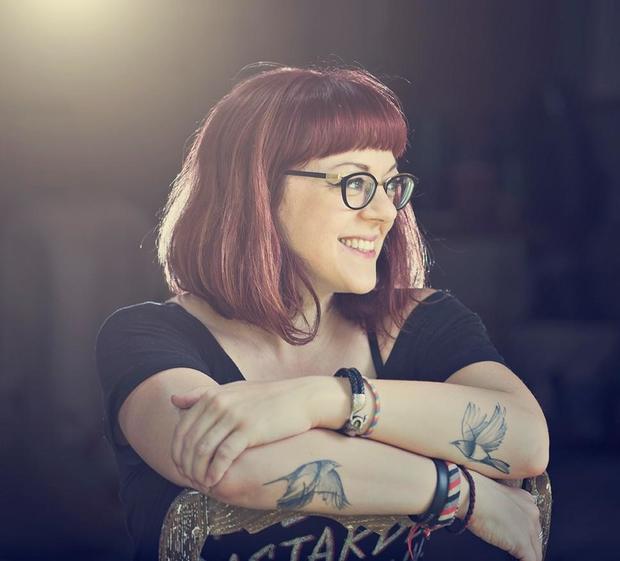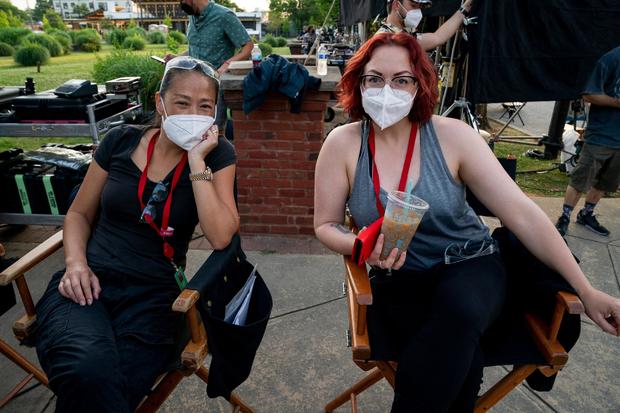
V. E. Schwab knows a lot about monsters.
When Schwab spoke to CBS News, she thrived on most of her popular fiction works, as their cruder inherited young adult fantasy. I admitted that I was there. In a genre already crowded with routine world-building, Schwab takes a strong joy in stepping on the thin line between the fun horrors that dangerous monsters can create and the desire of her readers to come to her. I feel it.
Schwab says this comes from respect for her young adults and teenage readers. She believes that other authors are much stronger than giving them credit.
Although the world of her story is constantly richly decorated and completely changing, all Schwab books contain some common threads. Odds that seem insurmountable enough to allow them to border on cruelty.
But that doesn't make her book fun. Instead, Schwab's novels delight in how her character lives and sometimes dies with eerie things, never relying on simple metaphors and pushing the boundaries between their world and genre to the limit. .. Most importantly, Schwab's books maintain a clear and decisive respect for their strange personality, often with the voice of a strong female protagonist, against pandaling claims and instead. Concentrate in a way that depends on the power of.
As a New York Times best-selling author, Schwab has published nearly 12 successful young adult fantasy books in nine years. She said it took only four to five months to write the first draft of her book. This can be seen as a backtracking pace, even for the most skilled writers. Even more striking, she showed no signs of slowing down and released another book, Gallant, due out in 2022.
Currently, her first television project,"First Kill", has already been streamed on Netflix and two other projects. And Schwab's series of works is not only the definitive collection of fantasy novels, but also an ascending empire.

CBS News writes for her motivation as a writer, upcoming big screen projects, and "one audience" I talked to Schwab about how. She changed her life forever.
CBS News: How do you feel about moving "First Kill" from a simple short story to the entire TV series? How will your goals change in such a process?
V. E. Schwab:What I know now is that I'm used to managing everything, managing stories, managing packages, managing readers, and managing all these aspects. That is. And this was an education about how little control I have.
And I think that's probably why I'm such a worried cat. But this is what I do. So I've been there for the last 12 or 13 years. By the way, like all other aspects of adulthood, I'm very bad at adulthood. But especially when it comes to writing novels and telling stories to myself , I'm very good at getting lost in my head. So being in a collaborative storytelling space is definitely a new environment.
The next two on-screen projects will be feature film versions of "A Darker Shade of Magic" and "The Invisible Life of Addie LaRue". The latest information on the movie empire.
V. E. Schwab: Oh, my goodness. The latest script was literally submitted yesterday. I think so. I am very alive. It may also be published on television or in movies. I was surprised that it looked fast. Last month, I literally completed a novel that came out 18 months later, but "First Kill" moved very fast in about three years from writing to airing. This is fast for TV.
"Darker Shade" is taking a sweet time. This is a very large movie and the budget is so high that we want to do it right. Everyone at Sony And I want to do it right. It's very lively and I'm very excited to read the latest script. So I was just waiting, like a creative plight. That's something I can control.
But I'm a popcorn optimist. I'm the one who doesn't believe things are real unless you can sit down and look at it with a bucket of popcorn. So when you have four or five things on your screen, you say [I have an empire].
What are your goals when you are working on a story written as adaptation?
V. E. Schwab: Most of the time, the mantra I live in is like a book is a cake and adaptation is icing. This is not bread and butter, as this is not my industry. And I'm really good at grounding in that space. However, it is a compromise practice to actually see the [project] come true. Because you are the minion of a much larger system from the God of the creative world, with many other visions, many other minds, aesthetics, and desires.
But it's also such an alchemical process, and the sum is much larger than the part.
Therefore, as long as you can separate the media as an author, the advantages outweigh the disadvantages. I can't expect this medium to behave like my book. It doesn't follow me like my book and doesn't get too close to my vision. Because when you write a novel, it really is the act of completely telling the idea from your head to the paper. And in the case of TV shows, it's the act of planting a garden and growing it in the wild.
What are some of your worries about writing the stories that come out?
V. E. Schwab: Telling a story is incredibly powerful, but it still makes sexuality another factor. What you need to come out is that you are not affiliated and that you are in conflict. And this may be very personal to me. Because I didn't need the story that came out. I came out when I was an adult. When it comes to media, we've come a long way. But this trend, this emphasis is still there. If the queer character is the main character in the story, the story must be about their queerness.
Now, what it says to the young queer audience is, "This is why we write a story about you." There are no other aspects. You may be a competitive swimmer, you may want to be a monster hunter, you may want to live in a genre space — "but those spaces are not you. Your sexuality is you. That's why you're on this page or on this screen. "And that's very subtle damage. You won't be at the center of this story because it says it's not about your queenness.
CBS News: Not writing metaphors like "filling gays" and books that make heavy use of both stakes and diverse characters that rely on fairly intense levels of danger. How do you balance it?
V. E. Schwab: There is never a world where I write shows and novels to bury your gays. It's always the biggest frustration for me. We already live in a harsh world and I'm writing a really dark book. But I always understand that my readers are coming to me for a little hope. And sometimes you do it for your character, and sometimes you don't.
I feel like there is a very dark answer to use when talking to the reader. In other words, if you kill a character, you will not be able to torture it. So what's the point? Pushing the character to the limit and pulling it back from their edges is much more interesting.
I believe in the happy ending of the story. They just need to earn.
CBS News: How to write horror joy, especially in a landscape where low stakes and high happy ending books seem to dominate the field. mosquito.
V. E. Schwab: Well, there is a reason why saccharin is so popular. But that doesn't necessarily make my boat float. It doesn't give me what I need as a teenager, and it doesn't give me what I want as an adult. For me, what I find powerful is to survive, endure, and prosper against the tides that are pushing you. And we live in dark times. As a fantasy writer, what I'm doing is trying to find a way to make something that can't be quantified feel concrete.
Because we can't literally fight the epidemic of violence in our country. But if, for example, they become monsters, that's something we can pick up and push back. And especially for teenagers, you feel you've never heard of it. You feel helpless. I feel like I can't move the world the way I need it. So I think one of the reasons I write fantasy is to provide characters and readers, whether kids, teens or adults, with the tools to fight a world without them.
What is the thread common to all books?
V. E. Schwab: My main character is always an outsider. It's about outsiders, that they have the ability to change the world around them if they so desire. They move vertically into the story like villains, just as they have the ability to break the mold. It seems to be the beautiful part of the villain and the hero. What makes them so wonderful in the story is that they move vertically, not parallel to everyone else's goals. I don't want to reduce it rebelliously, but my character pushes on things around them. They find cracks and try to break open their world.
When you first started writing a book, have you ever thought that you would be successful now?
V. E. Schwab: No. For example, I sold my first book when I was 21. I'm 34 years old. I am now writing 22 published books. But for the first four or five years, I couldn't make ends meet. I lived at home and was below the minimum wage for books. No one was reading them. I'm about to quit a book at the age of 25.
In essence, I received this kind of revelation and wrote a book called "Vicious". And I decided that it would be the last book I wrote for publication. And I didn't have to give f *** anymore to allow my language, so I decided to write what I wanted to read, without worrying about how the publisher would sell it. did.
And the book changed my entire career. It became my first adult novel and the beginning of a whole new chapter. What I removed from it was that I was writing for an audience. Everything I write, I have no control over the number of people reading it. You have no control over how publishers advertise it. I have control over writing the stories that I am most excited about. And literally all the books after this are just for myself.
Thank you for reading CBS NEWS.
Create a free account or log in to
to take advantage of other features.


